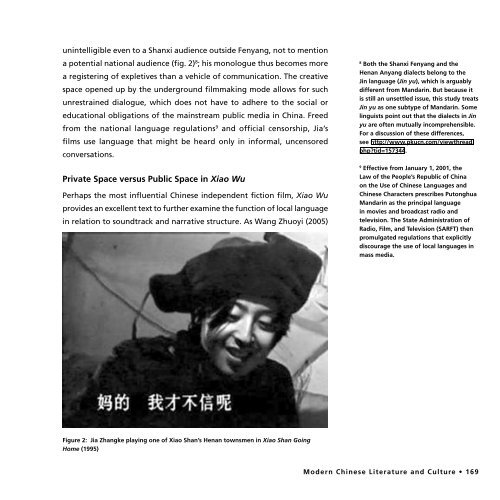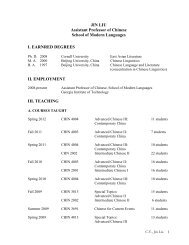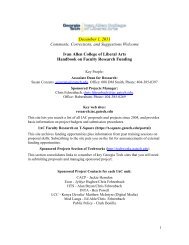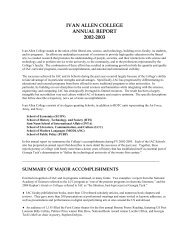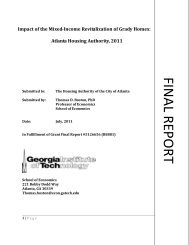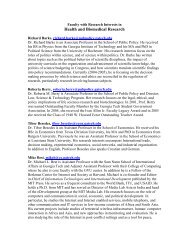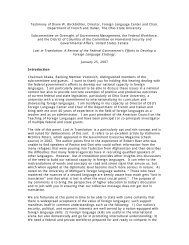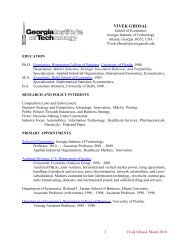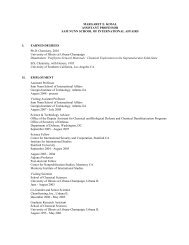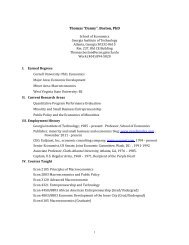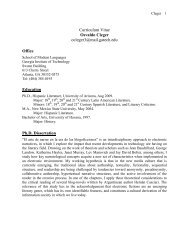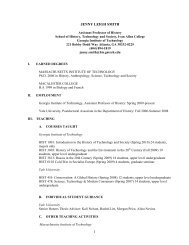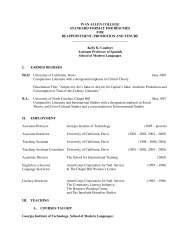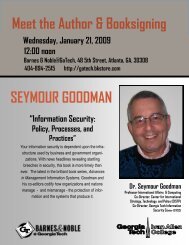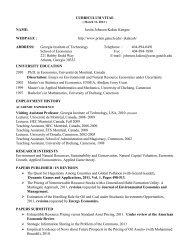Read this paper
Read this paper
Read this paper
Create successful ePaper yourself
Turn your PDF publications into a flip-book with our unique Google optimized e-Paper software.
unintelligible even to a Shanxi audience outside Fenyang, not to mention<br />
a potential national audience (fig. 2) 8 ; his monologue thus becomes more<br />
a registering of expletives than a vehicle of communication. The creative<br />
space opened up by the underground filmmaking mode allows for such<br />
unrestrained dialogue, which does not have to adhere to the social or<br />
educational obligations of the mainstream public media in China. Freed<br />
from the national language regulations 9 and official censorship, Jia’s<br />
films use language that might be heard only in informal, uncensored<br />
conversations.<br />
Private Space versus Public Space in Xiao Wu<br />
Perhaps the most influential Chinese independent fiction film, Xiao Wu<br />
provides an excellent text to further examine the function of local language<br />
in relation to soundtrack and narrative structure. As Wang Zhuoyi (2005)<br />
8<br />
Both the Shanxi Fenyang and the<br />
Henan Anyang dialects belong to the<br />
Jin language (Jin yu), which is arguably<br />
different from Mandarin. But because it<br />
is still an unsettled issue, <strong>this</strong> study treats<br />
Jin yu as one subtype of Mandarin. Some<br />
linguists point out that the dialects in Jin<br />
yu are often mutually incomprehensible.<br />
For a discussion of these differences,<br />
see http://www.pkucn.com/viewthread.<br />
php?tid=157344.<br />
9<br />
Effective from January 1, 2001, the<br />
Law of the People’s Republic of China<br />
on the Use of Chinese Languages and<br />
Chinese Characters prescribes Putonghua<br />
Mandarin as the principal language<br />
in movies and broadcast radio and<br />
television. The State Administration of<br />
Radio, Film, and Television (SARFT) then<br />
promulgated regulations that explicitly<br />
discourage the use of local languages in<br />
mass media.<br />
Figure 2: Jia Zhangke playing one of Xiao Shan’s Henan townsmen in Xiao Shan Going<br />
Home (1995)<br />
Modern Chinese Literature and Culture • 169<br />
MCLC 18.2.indd 169<br />
12/20/06 2:01:35 PM


